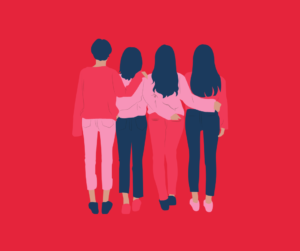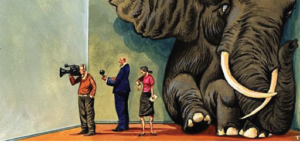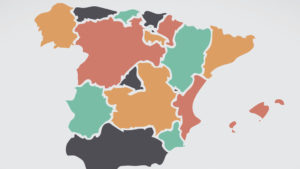The adaptation of the public institutions to the new paradigm 2.0 is a need that cannot be delayed.
The impact of internet and more precisely of this new web 2.0 has caused enormous changes in the way in which different social actors relate with each other. Nowadays, the barriers which clearly separated in the past the addressor-addressee, seller-consumer, manufacturer-buyer, etc., have disappeared, up to the point that the term producer-consumer is no longer used, but instead we speak of proconsumer,people that take part in the process of production that he/she is going to consume. This may be goods, news, services, etc.
When the internet appeared, it was believed that it would make a great contribution to freedom and the democratization of information because there would be more visions about reality. Today this process of information liberalization has reached its peak. Where people stopped consuming information to start producing it themselves. Who does not share a certain view on a subject, not only can express it on the same site, commenting on his opinion on the exposed, but can create his own page to directly give the vision of it. But what is substantially more important is that in addition to giving their opinion on an established issue, today anyone has the power to set the agenda to be discussed. It is not only to give your look on a news, but it is the power to create the news.
This phenomenon was born thanks to internet however it did not die there, but rather transcended the internet. Any traditional communication medium has incorporated to its old receptors so as they become producers of information sending their filming, photos, news, etc.
Companies have also adapted to this new phenomenon, they stopped manufacturing products to then start, through advertising, persuading people to buy them. Currently, companies make available to their consumers all the tools 2.0, for those customers which would like to leave their passive status and start participating in the production of those products which then they will acquire. Companies changed their logic and instead of talking to the consumers, the company hears them.
The citizen as part of the administration.
In short, people claim to have an active role in all those aspects that interfere in their livesand technology has given them the tools to make it possible.
However, one of the most important relationships in society, the one of ruler-governed, has remained isolated from this whole new advance. The reasons are several: on the one hand, the leaders of the public institutions mostly belong to a generation called Baby Boomers, and as being “digital immigrants”, they do not understand the importance and logic of this medium; on the other hand, these institutions have its survival secured. In the case of a company, if it does not adapt to social changes, its supremacy in the market and even its existence are at risk. By contrast, this does not happen in the state. The only affected by this situation is the citizen, who is prevented from using the tools 2.0 to improve its quality of life.
This situation is explained by what is called The Law of the Fracturewhich stipulates the technological changes follow an exponential growth while business, social, political and human changes do so gradually.
When we refer to a policy 2.0, we are not just speaking from the communicational point of view, i.e., the use of social networks to communicate the candidate with the voters and vice versa. However, we are also speaking about the use of the opportunities that technology provides for the modification of the traditional way of government.
The fact that the public institutions have practically maintained still since its creation highlights the urgency to establish modifications at all levels. The political institutions that currently rule in Argentina are from the XIX century. These institutions were very well adapted to that time, but two centuries after they have remained completely out of context and anachronistic.
The world changed in two centuries, society changed, the demands of society changed, everything changed, except the institutions in change of ruling society.
The challenge that arises before this situation is how to make the political changes to accompany the technological and social changes, without the latter being forgotten. If not, great opportunities to improve the quality of life of the people are been wasted.






